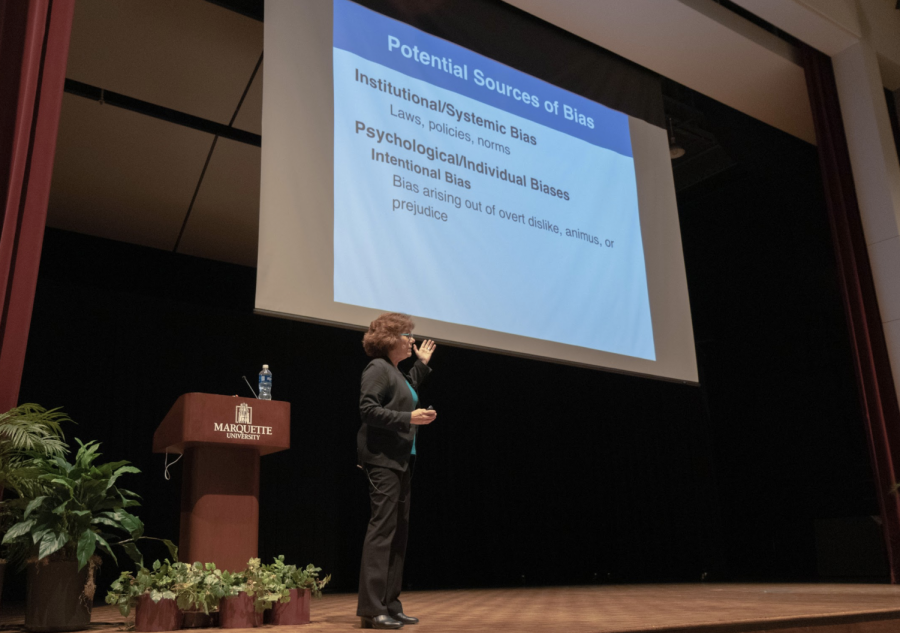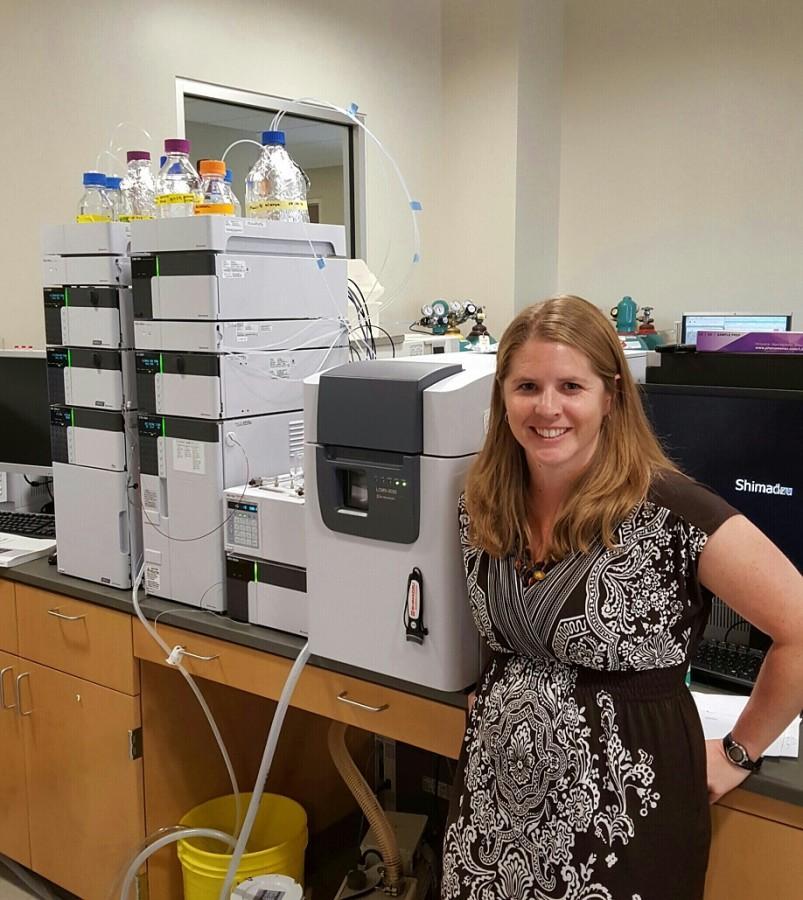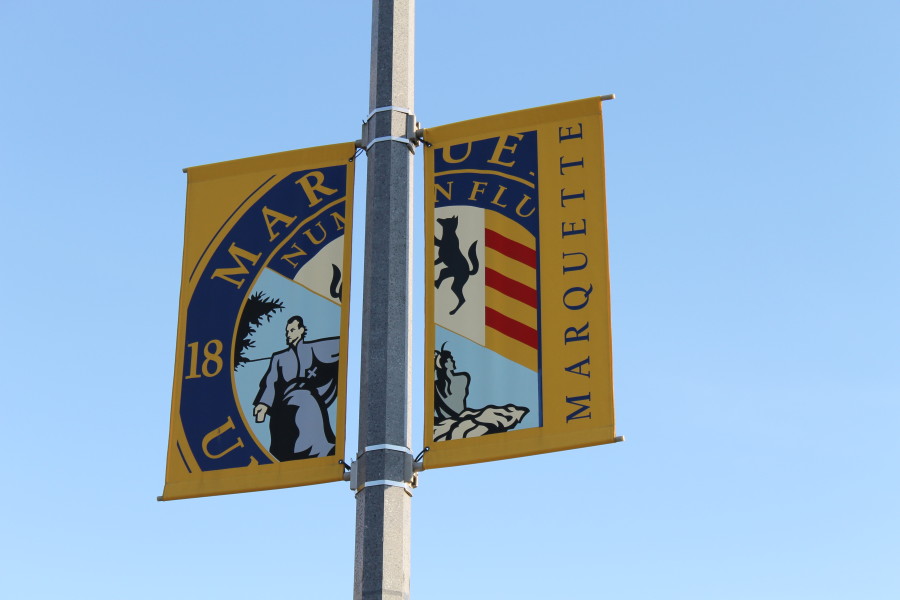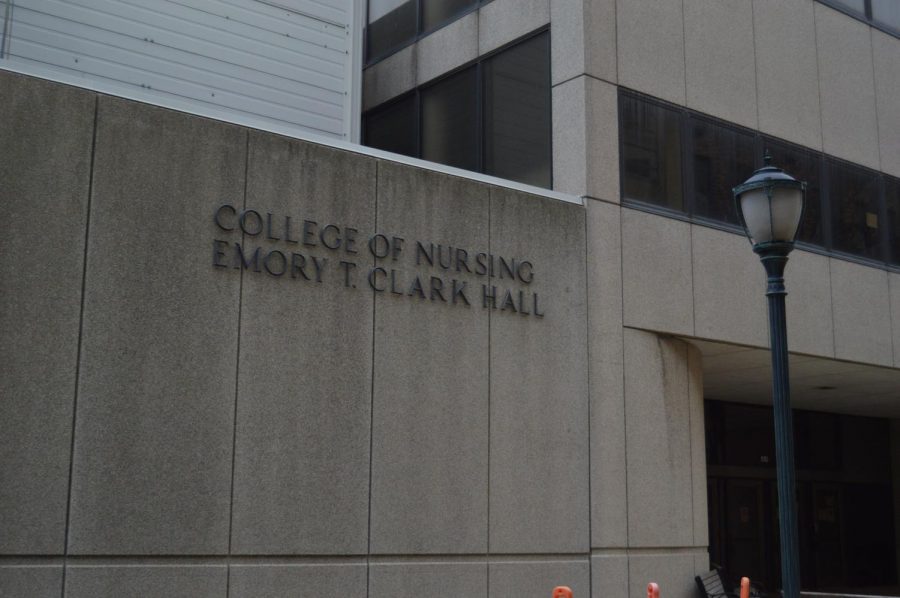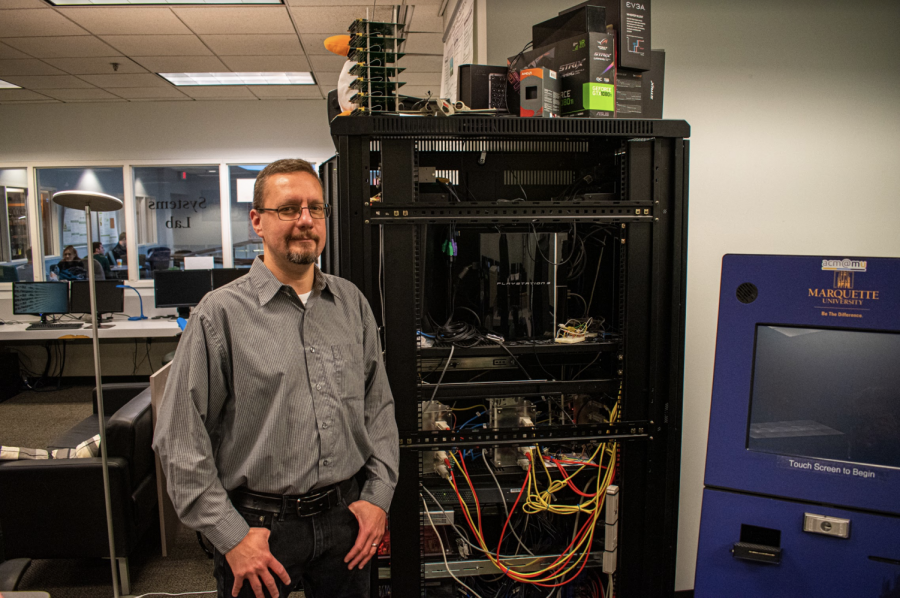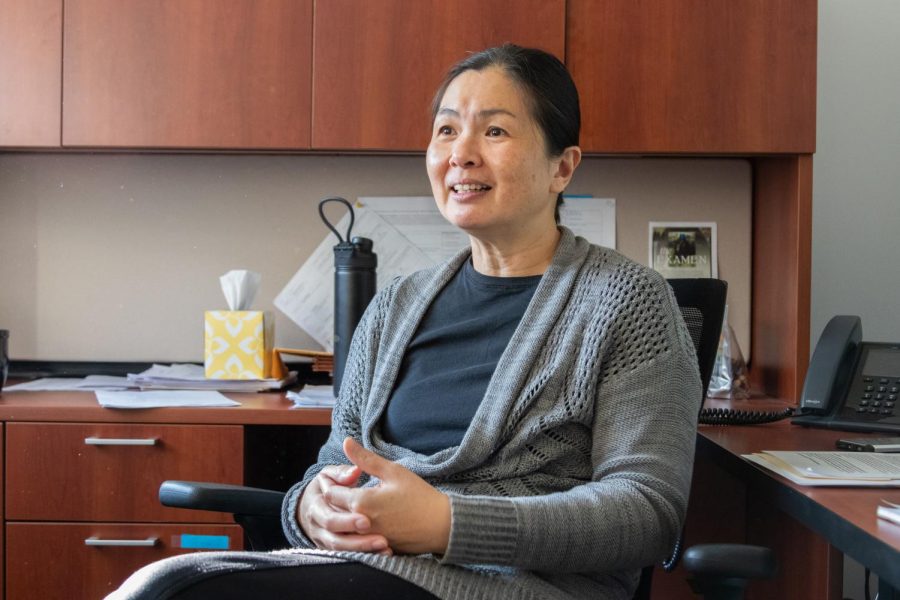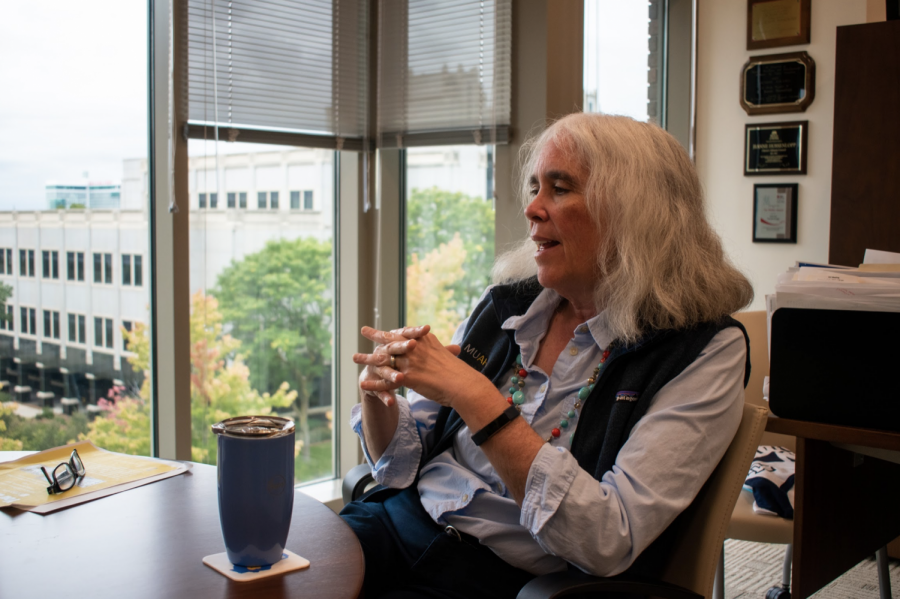A trio of Marquette engineering professors are working on a project to come up with ways to treat contaminated drinking water throughout the world, and they got a $200,000 grant from the National Science Foundation last week to do it.
“It is a very pressing issue with global implications and developing technology that can be used in emergency situations and rural areas was appealing,” said Patrick McNamara, an assistant professor in the College of Engineering.
He’s teaming up with assistant professor Brooke Mayer, who is spearheading the project, and professor Daniel Zitomer, who directs the College of Engineering’s Water Quality Center.
The group’s grant comes through a water policy center in Milwaukee, which falls under the National Science Foundation’s research program. Marquette and the University of Wisconsin-Milwaukee are the founding university partners in the center.
The universities have collaborated with companies and public entities in the city, including A.O. Smith, Badger Meter, Donahue & Associates, Marmon Water, Milwaukee Metropolitan Sewerage District, Pentair and others.
Together the industry actors worked together to develop research for water equipment and waste-water technologies. That includes a process called electrocoagulation, which works to get rid of contaminants through physical and chemical methods.
Mayer said one of the big problems with the industry is a lack of knowledge concerning contaminants and how to use electrocoagulation to treat drinking water.
The Environmental Protection Agency has a catalog of these contaminants, called the contaminant candidate list or “CCL.” The list is made up of viruses and estrogens that are known or believed to be in public water systems.
“Additional data is needed to establish the treatment efficiency of these species, their health impacts and their occurrence in water systems,” Mayer said in an email.
She also said the group worked with industry members to create a scope of mutual interest for the NSF’s grant. The proposal they created is designed to strengthen understanding of the contaminant problem and begin industrial-relevant research.
“This research will advance knowledge of CCL contaminants and will also stimulate improved development and implementation of innovative approaches to drinking water treatment,” Mayer said. “This project generates new fundamental knowledge of the dominant treatment mechanisms and susceptibility of CCL viruses and estrogens to EC, which will improve future water treatment process design and contribute to regulatory determinations.”
Researchers will work on the project in Marquette’s Water Quality Center in the College of Engineering.



